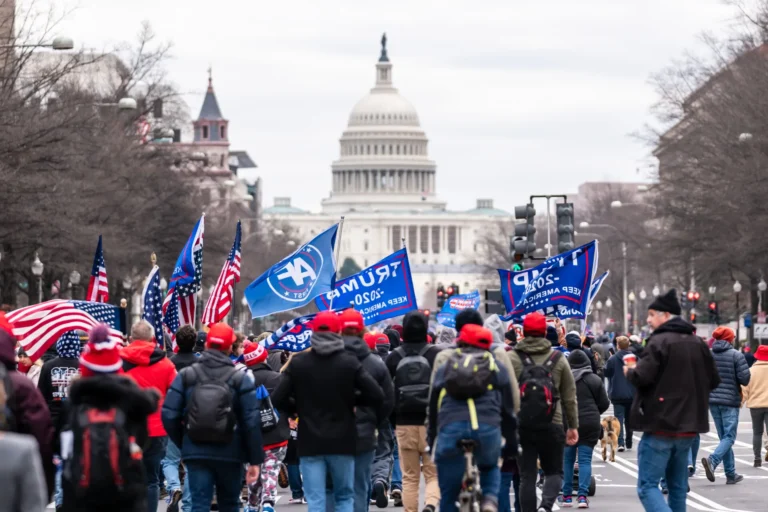The public must know what its government is doing for America to remain a democracy. Bush Secrecy Has Made America ‘Less Secure’, Study FindsBy Cliff Montgomery – Oct. 14th, 2008OpenTheGovernment, a government secrecy watchdog group which calls for “less secrecy, more democracy,” recently released its 2008 Secrecy Report Card on the U.S. government–and it gives the Bush Administration a failing grade. The group’s fifth annual report “shows both a continued expansion of government secrecy across a broad array of agencies and actions,” the study stated, “and [only] some movement toward more openness and accountability, particularly in the Congress.”The public must know what its government is doing for America to remain a democracy in fact, and not just in name.”We have been made less secure as a result [of Bush Administration secrecy] and the open society on which we pride ourselves has been undermined,” added the report.Below we offer the study’s essential facts on Bush Administration secrecy for 2008:CLASSIFIED INFORMATION
- Classification activity still remains significantly higher than before 2001.
- In 2006, the number of original classification decisions increased slightly to 233,639, after dropping two years in a row. The numbers remain significantly higher than before 2001.
- $195 Spent Creating and Securing Old Secrets for Every Tax Dollar Spent Declassifying
- The government spent $195 maintaining the secrets already on the books for every one dollar the government spent declassifying documents in 2007, a 5% increase in one year. At the same time, fewer pages were declassified than in 2006.
- 18% OF DOD FY 2008 Acquisition Budget Is Classified or “Black”
- “Black” programs accounted for about $31.9 billion, or 18 percent of the (FY) 2008 Department of Defense (DOD) acquisition funding requested in 2007. Classified acquisition funding has more than doubled in real terms since FY 1995.
FREEDOM OF INFORMATION ACT
- FOIA Requests Continue to Rise; Backlogs Problems Persist
- Almost 22 million FOIA requests were received in 2007, an increase of almost 2% over last year. The 25 departments and agencies that handle the bulk of the third-party information requests, however, received 63,000 fewer requests than 2006 — but processed only 2,100 more.
- Costs rise, but at 25 agencies expenditures fell
- In 2007, the total cost of FOIA implementation across the government increased 16%. But a 2008 study revealed that, in 2007, FOIA spending at 25 key agencies fell by $7 million to $233.8 million and the agencies put 209 fewer people to work processing FOIA requests.
INVENTION SECRECY
- 128 New Patents Kept Secret, 5,002 “Secrecy Orders” in Effect
- In 2007, the federal government closed the lid on 128 patents. Overall, that brings the total number of inventions kept under “secrecy orders” to 5,002.
THE COURTS
- 2,371 Orders of the Secretive Foreign Intelligence Surveillance Court
- While the Foreign Intelligence Surveillance Court does not reveal much about its activities, the Department of Justice reported that, in 2007, the FISC approved 2,371 orders — rejecting three and approving two left over from the previous year.
WHISTLEBLOWERS
- Whistleblowers Lawsuits Recover Billions for Taxpayers; 900 Cases Wait DOJ Action
- In FY 2007, suits brought by whistleblowers accounted for $1.45 billion of the $2 billion the United States obtained in settlements and judgments concerning fraud on the United States. However, DOJ faces an ever-growing backlog of over 900 cases.
FEDERAL CONTRACT COMPETITION
- More than 25% of all awards are not competed at all
- In 2007, 26.2 percent ($114.2 billion) of federal contracts’ dollars were completely uncompeted; only one-third of contracts dollars were subject to full and open competition. On average since 2000, more than 25% of all contract funding was not competed and fully and openly competed contracts have dropped by almost 25%
MANDATORY DECLASSIFICATION REVIEW
- Review Process Yields Information, But Backlogs Significant
- In 2007, agencies received 7,827 new initial requests for Mandatory Declassification Review (MDR), of which 88% were processed, resulting in the declassification of information in 431,371 pages: 75% in full; 18% in part; 7% remained classified in their entirety after review. For 2007, almost 5,000 initial requests — 42% — were carried over into 2008.
FEDERAL ADVISORY COMMITTEE ACT (FACA) MEETINGS
- Scientific and Technical Advice Increasingly Closed to Public
- In 2007, government-wide 64% of FACA committee hearings were closed to the public. Excluding groups advising three agencies that historically have accounted for the majority of closed meetings,15% of the remainder were closed — a 24% increase over the number closed in 2006. These numbers do not reflect closed meetings of subcommittees and taskforces.
PRESIDENTIAL SIGNING STATEMENTS
- George W. Bush issues 156 Statements; Number Declines in 2nd Term
- In seven years, President Bush has issued at least 156 signing statements, challenging over 1000 provisions of laws. In 2007, 8 were issued.
“STATE SECRETS” PRIVILEGE
- Reported Invocations Continue to Rise
- Invoked only 6 times between 1953 and 1976, the privilege has been used a reported 45 times — an average of 6.4 times per year in 7 years (through 2007) — more than double the average (2.46) in the previous 24 years.
ASSERTIONS OF EXECUTIVE PRIVILEGE
- Since Kennedy, only Nixon and Clinton surpass President Bush
- President G.W. Bush has asserted Executive Privilege 3 times in response to congressional requests, as of June 28, 2007.
NATIONAL SECURITY LETTERS
- National Security Letter Requests Continue to Rise; 2007 Numbers Still Classified
- The recently unclassified new number for 2006 shows a 4.7 percent increase in requests from 2005.
Like what you’re reading so far? Then why not order a full year (52 issues) of thee-newsletter for only $15? A major article covering an story not being told in the Corporate Press will be delivered to your email every Monday morning for a full year, for less than 30 cents an issue. Order Now! *Privacy Policy: We use third-party advertising companies to serve ads when you visit our website. These companies may use information (not including your name, address, email address, or telephone number) about your visits to this and other websites in order to provide advertisements about goods and services of interest to you. If you would like more information about this practice and to know your choices about not having this information used by these companies, click here.





